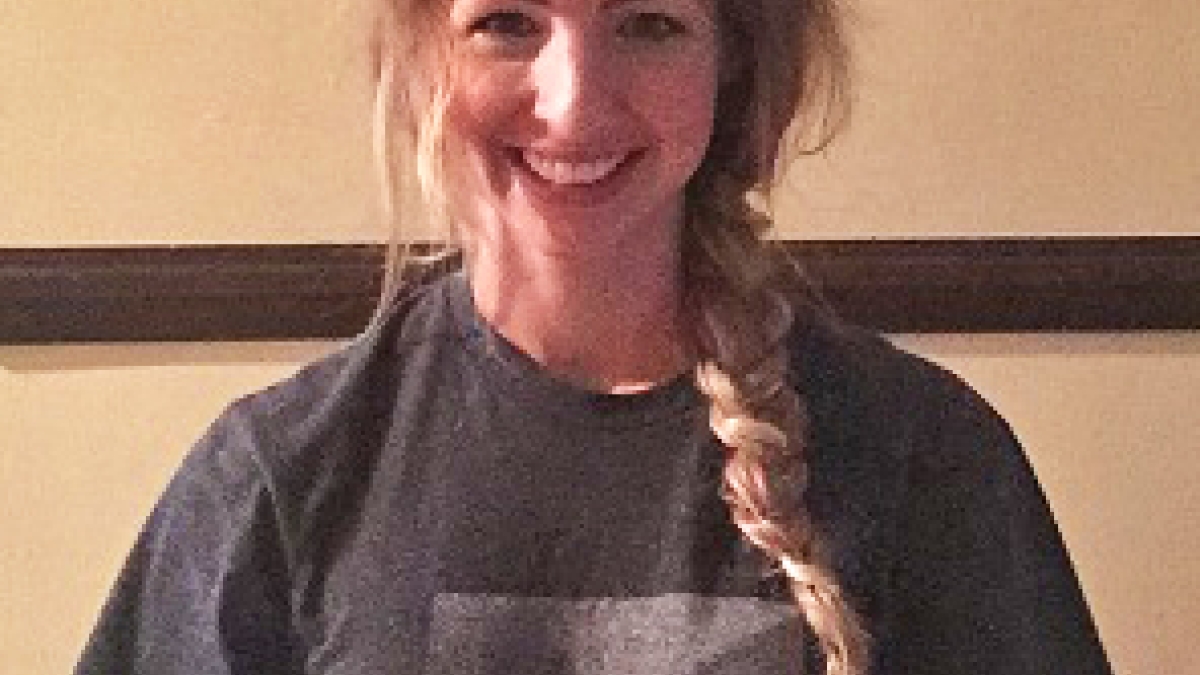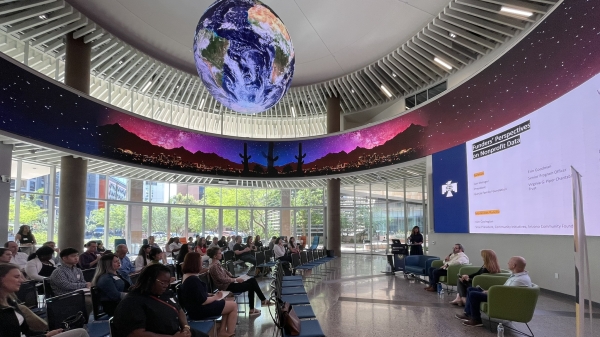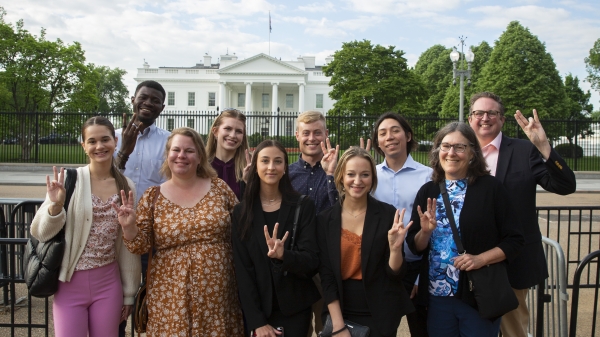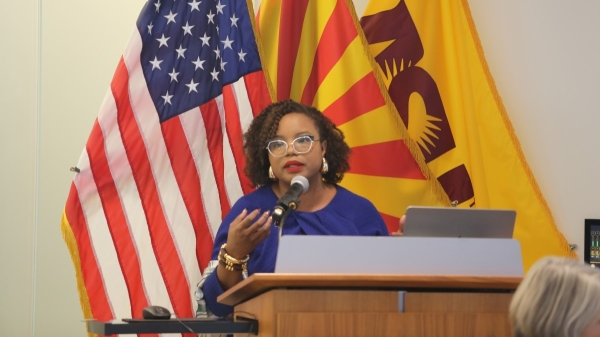Global health alum helps fund health, humanitarian work in South Africa

Mackenzie Cotlow, who was the first to receive a bachelor's in global health from Arizona State University, is putting her degree to work promoting Doctors Without Borders in South Africa.
Six years ago, Mackenzie Cotlow received the first bachelor’s degree in global health awarded by Arizona State University.
The program — which mixes a holistic understanding of today’s complex health issues with a social justice component — was a natural for Cotlow, who was looking for an education that would help her achieve her dream of bettering the world.
Since graduating, she has realized that dream by moving to South Africa to work for Medecins Sans Frontieres (Doctors Without Borders), one of the best-known humanitarian organizations in the world.
As a fundraising consultant, Cotlow educates the public about the 5.7 million-member-strong organization and works to bring new donors into the fold. Though the work is challenging and involves long hours, she said the successes make it worthwhile.
“It’s really special and exciting being a part of such a powerful NGO (non-government organization), capable of so much good and so much change,” she said. “What is so special about advocating for joining our donor family in South Africa especially is that donors have the potential to be the beneficiaries. Solidarity is something I truly believe in.”
Before coming to South Africa, Cotlow spent a year and a half in South Korea teaching English to students of all ages in a multicultural environment.
Though her passion for helping others is innate, she traces her penchant for seeing the world to her time in ASU’s School of Human Evolution and Social Change in the College of Liberal Arts and Sciences. Part of the school's global health curriculum is a study abroad requirement, which she fulfilled in Fiji and New Zealand.
There, she was given real-world opportunities to learn about local health and environmental issues during a home stay with a New Zealand farming family and work with Fijian villagers. One of the highlights was helping develop sustainable health solutions for indigenous communities.
“Seeing as how it was the first time I had gone overseas, it completely and utterly changed my life and literally opened up a whole new world for me,” Cotlow said. “I think the biggest part of this experience was simply that I realized the world is big, it’s full of amazing people and places and the potential for learning is immense.”
Fondly remembering her time at ASU, Cotlow is appreciative of the many new experiences of her program and her globally minded professors, whom she calls “some of the most brilliant people” she has ever met. But what stands out the most is the host of international peers: interesting, smart people she is glad to still be friends with today.
Only two weeks ago, she checked in with one of those former fellow students — a Chilean, whom she worried about in the wake of the 8.3-magnitude earthquake off Chile’s coast.
“I suddenly felt like the world was so small. I was working to raise funds for earthquake and possibly tsunami victims, one of whom could have been my good college friend,” Cotlow said. “Thankfully, he’s all right.”
Cotlow credits her global health training with helping her learn how to connect with a diversity of people and break out of her sheltered shell to “fully embrace the wonderful and different aspects of what the world has to offer.”
This fall, Cotlow will indulge her thirst for travel once again with visits to Britain and France and eventually make her way back to the U.S., where she hopes to continue working for Medecins San Frontieres at its New York City location.
More Local, national and global affairs

Conference draws professionals from across the US to collaborate on data research
By Lillian Finley Researchers, professors, students and nonprofit professionals gathered at Arizona State University’s Downtown…

Students travel to DC to present proposals on climate change
Ten students from Arizona State University’s Humanities Lab spring course — Diplomacy Lab: Brazil — traveled to Washington, D.C…

Economic development, the 'Black tech ecosystem' and a tale of two economies
When it comes to funding technology cluster initiatives, people across the country want to see how experts are analyzing long-…